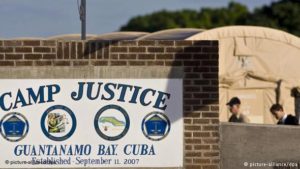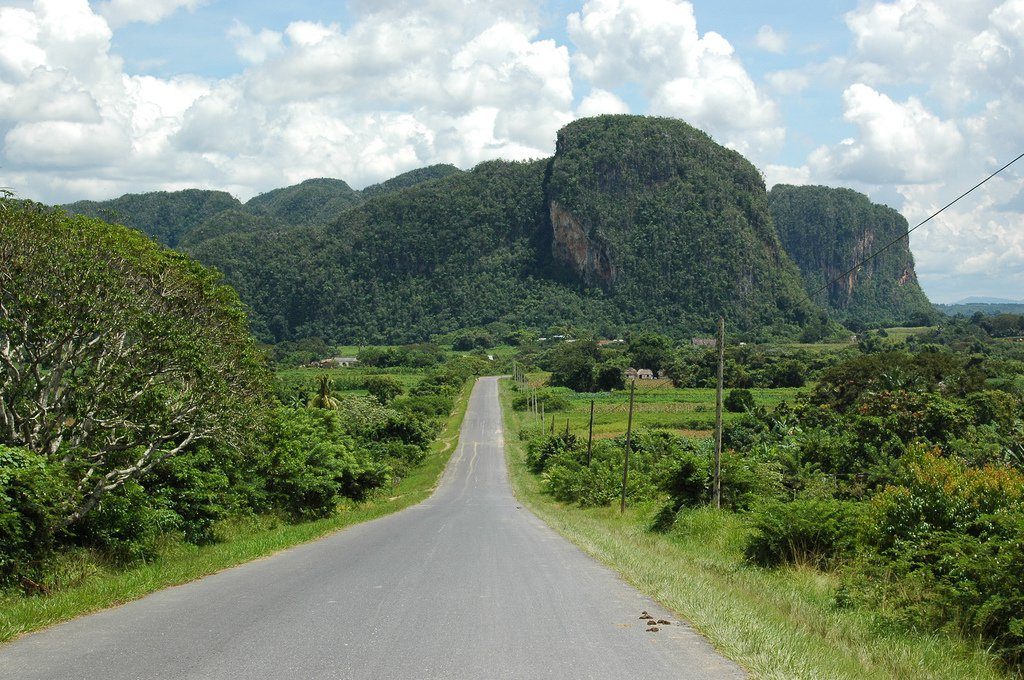For most analysts, a return of military bases or Russian espionage to the island is a real danger for the continuation of the normalization of relations between Havana and Washington Governments.
The lifting of the blockade and the return to Cuba of the territory of the Base Naval in the United States in Guantanamo remain the main requirements of Raúl Castro’s Government for the full normalization of relations. Then, is not conscious Raul that negotiations with Russia so that the island have bases military and espionage are an obstacle so that hawks of the United States, the historic enemy of Moscow, decide to abandon the military site, which is one of their most valuable positions in Latin America?
Raúl Castro and his son Alejandro Castro Espín, that is who today holds the reins of the powerful network of business deals and geopolitics in the island, continue in a tactic that, so far, still giving them results: not cede one iota either United States or Europe. As said in a recent interview the possible successor of Raul, Miguel Díaz Canel, is time of pick up without giving in, as “the enemy, defeated in its absurd pressure strategy, will have to continue giving to achieve the objective of destabilizing the revolution with these new strategies of pretending to be more diplomatic”.
That reality, that don’t want to see or advisers to the White House and those of the European Union, own Fidel Castro left her clear years ago when told a journalist that the arrogance of the Americans and the Europeans in their attempts to defeat the revolution turned them into “ridiculous clowns of politics” and that the real triumph of Cuba was to have put those enemies the costume they deserved the clown.
A convenient ally
In moments in which danger and generous Venezuelan aid is becoming less useful, Havana takes concrete and highly visible steps in search of another salvador: who does not see these movements, is blind. In that context, Russia is more viable, because the Castro know that that Alliance will come accompanied by oil, that the country needs more and more desperately, and ally of a tactical reinforcement of Cuban military power in the region and at international level, which suffered a crushing defeat in 2001 with the departure of Russian troops from the ports of Havana and Cienfuegos , the suspension (is not yet known whether temporarily or permanently) the core of Russian nuclear submarines in Cienfuegos and the closure of the important spy base in Lourdes, which allowed to intercept data from almost all the territory of the North American country radio.
Cuba wants the return of the Guantanamo base area.
The Russian press asks if the intentions of the Kremlin is to reinstate a naval unit or a base for espionage, which is the most useful option for Russian military strategists. It couldn’t be because in the old premises of Lourdes, because now there is the University of Informatics Sciences (UCI), vital point of the Government in its fight against what they call “attacks enemies in cyberspace against the revolution”.
But in may 2014, Colonel Alejandro Castro Espín, son of Raúl Castro, signed an agreement of cooperation and joint work between the Security Council of the Russian Federation and the Council of national defense of Cuba. And, exactly one year later, in may 2015, Serguei Narishkin, the current head of Russian espionage, following a visit to Cuba, proposed Raúl Castro that the country joined the Organization of Treaty of collective security (CSTO), the military group that joins the former Soviet republics in the military and political fields.
New realities
Now, just when the Obama policy provoked a change of strategy at the international level in relation to Cuba, Dimitri Peskov, the Kremlin spokesman says should adapt to the new situations of conflict in international reality. Thus, just to mention some of those “areas of conflict”, Russia already has two military bases in Syria, and works quickly in the conversion of the unit of logistic support of Tartus into a permanent naval base, in addition to the airbase that since August, 2015 in Latakia. In Asia, another area of interest to the Kremlin, there is agreement from 2013 for the joint use of supply units in Cam Ranh, from where aircraft Il-78 and Tu-95MC patrol the region.
Reopen Cuba spying base does not only mean the possible return of Russian troops to the island; not only could give Putin a new point for its nuclear weapons returning any naval base, perhaps the same nuclear submarines in Cienfuegos, but would also allow him to take a first step, strategically essential, to achieve a greater Russian influence in Latin America.
Agencies / DW Germany/Amir Valle/ Internet Photos/ Arnoldo Varona/ TheCubanHistory.com
THE CUBAN HISTORY, HOLLYWOOD.
![]() NUEVA ESTRATEGIA RUSA EN CUBA: REGRESAR A SU INFLUENCIA MUNDIAL.
NUEVA ESTRATEGIA RUSA EN CUBA: REGRESAR A SU INFLUENCIA MUNDIAL.
Para la mayoría de los analistas, un retorno de las bases militares o de espionaje ruso a la isla es un peligro real para la continuidad de la normalización de relaciones entre los gobiernos de La Habana y Washington.
El levantamiento del bloqueo y la devolución a Cuba del territorio de la Base Naval de los Estados Unidos en Guantánamo siguen siendo las exigencias principales del gobierno de Raúl Castro para la normalización total de las relaciones. Entonces, ¿no es consciente Raúl de que las negociaciones con Rusia para que la isla vuelva a tener bases militares y de espionaje son un obstáculo para que los halcones de Estados Unidos, el enemigo histórico de Moscú, decidan abandonar ese emplazamiento militar, que es una de sus posiciones más valiosas en América Latina?
Raúl Castro y su hijo Alejandro Castro Espín, que es quien lleva hoy las riendas de ese poderoso entramado de negocios y juegos con la geopolítica en la isla, continúan en una táctica que, hasta el presente, les sigue dando resultados: no ceder ni un ápice ni a Estados Unidos ni a Europa. Como ha dicho en una reciente entrevista el posible sucesor de Raúl, Miguel Díaz Canel, es época de recoger sin ceder, pues “el enemigo, derrotado en su absurda estrategia de la presión, tendrá que seguir cediendo para conseguir el objetivo de desestabilizar la Revolución con estas nuevas estrategias de fingir ser más diplomáticos”.
Esa realidad, que no quieren ver ni los asesores de la Casa Blanca ni los de la Unión Europea, la dejó clara hace unos años el propio Fidel Castro cuando le confesó a un periodista que la prepotencia de los norteamericanos y los europeos en sus intentos de derrotar a la Revolución los convertía en “ridículos payasos de la política” y que el verdadero triunfo de Cuba era haber puesto a esos enemigos el traje que se merecían, el de payasos.
Un aliado conveniente
En momentos en que peligra y se hace cada vez menos útil la generosa ayuda venezolana, La Habana da pasos muy visibles y concretos en la búsqueda de otro salvador: quien no vea esos movimientos, es ciego. En ese contexto, Rusia es el aliado más viable, pues los Castro saben que esa alianza vendrá acompañada de petróleo, que el país necesita cada vez más desesperadamente, y de un reforzamiento táctico del poderío militar cubano en la región y a nivel internacional, que sufrió una demoledora derrota en el 2001 con la salida de las tropas rusas de los puertos de La Habana y Cienfuegos, la suspensión (aún no se sabe si temporal o definitiva) de la base de submarinos nucleares rusos en Cienfuegos y el cierre de la importante base de espionaje de Lourdes, que permitía interceptar los datos de radio en casi todo el territorio del país norteamericano.
Cuba quiere la devolución del área de la base de Guantánamo.
La prensa rusa se pregunta si las intenciones del Kremlin son reinstaurar una unidad naval o una base de espionaje, que es la opción más útil para los estrategas militares rusos. No podría ser ya en las antiguas instalaciones de Lourdes, pues ahora allí se encuentra la Universidad de las Ciencias Informáticas (UCI), punto vital del gobierno en su lucha contra lo que llaman “ataques enemigos del ciberespacio contra la Revolución”.
Pero en mayo del 2014, el coronel Alejandro Castro Espín, hijo de Raúl Castro, firmó un acuerdo de cooperación y trabajo conjunto entre el Consejo de Seguridad de la Federación Rusa y el Consejo de Defensa Nacional de Cuba. Y, exactamente un año después, en mayo de 2015, Serguei Narishkin, el actual jefe del espionaje ruso, tras una visita a Cuba, propuso a Raúl Castro que el país se incorporara a la Organización del Tratado de Seguridad Colectiva (OTSC), la agrupación militar que une a las ex repúblicas soviéticas en el ámbito militar y político.
Nuevas realidades
Ahora, justamente cuando la política de Obama provocó un cambio de estrategia a nivel internacional en relación con Cuba, el portavoz del Kremlin, Dimitri Peskov, asegura que hay que adaptarse a las nuevas situaciones de conflicto en la realidad internacional. Así, por sólo mencionar algunas de esas “zonas de conflictos”, Rusia tiene ya dos bases militares en Siria, y trabaja rápidamente en la reconversión de la unidad de apoyo logístico de Tartus en una base naval permanente, además de la base aérea que desde agosto de 2015 posee en Latakia. En Asia, otra zona de interés para el Kremlin, existe un acuerdo del 2013 para el uso conjunto de unidades de abastecimiento en Cam Ranh, desde donde Aviones Il-78 y Tu-95MC patrullan la región.
Reabrir la base de espionaje en Cuba no significa solamente el posible regreso de las tropas rusas a la isla; no sólo podría conceder a Putin un nuevo punto para sus armas nucleares devolviéndole alguna base naval, quizás la misma de submarinos nucleares en Cienfuegos, sino también le permitiría dar un primer paso, estratégicamente esencial, para lograr una mayor influencia rusa en América Latina.
Agencies/DW Germany/Amir Valle/ Internet Photos/ Arnoldo Varona/ TheCubanHistory.com
THE CUBAN HISTORY, HOLLYWOOD.






